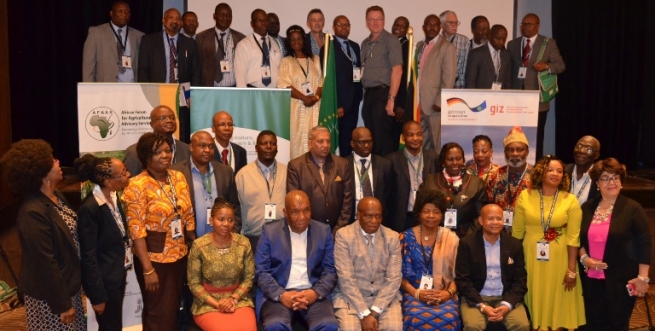This was the core message at the official launch of the 3rd edition of the AFAAS Africa-Wide Agricultural Extension Week 2017 held on 30th October 2017 in Durban, South Africa.
Around 700 delegates from and outside Africa attended the kickoff of the joint 3rd edition of the conference of AFAAS Africa-Wide Agricultural Extension Week 2017 and the 51st Annual conference of the South African Society for Agricultural Extension at the Southern Sun Elangeni Hotel. The ceremony was graced by the Minister of Agriculture, Forestry and Fisheries of the Republic of South Africa, Hon. Senzeni Zokwana and the AFAAS Patron, Prof. Ruth Oniang’o. Negative effects of Climate change in agricultural productivity geared the theme of the conference: “Scaling up climate smart agriculture: integrating youth, women and the digital revolution”. In her speech, Prof. Oniang’o appreciated different technologies presented by exhibitors. “We have technologies showing us how we can grow food in the desert and arid areas”, she said. But she also pointed out lack of partnership and experience sharing among actors. She recalled the critical role played by African women in feeding the world and the huge opportunities in agriculture for the youths. For the Hon. Senzeni Zokwana, there is a need for more interactions between extension workers and farmers. Because “no farmer will produce efficiently under certain conditions without being assisted by an extension worker”, he said. To enhance this support to farmers, agricultural extension needs more resources and guideline policies. Fighting against climate change implies efficient use of human resources, available funds and technologies. By doing so Africa will overcome food insecurity and will become the food basket of the world.

